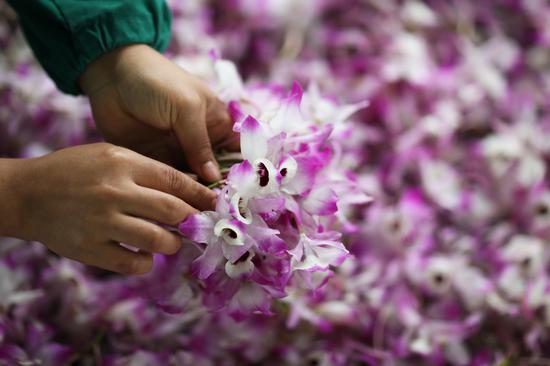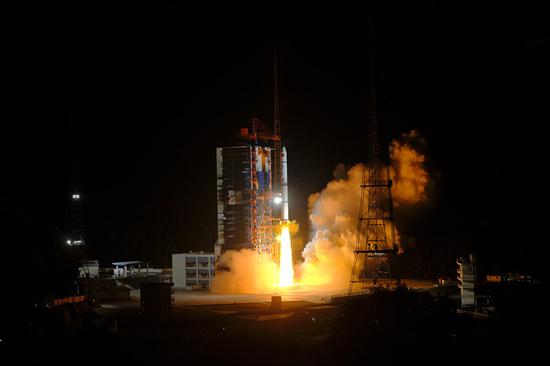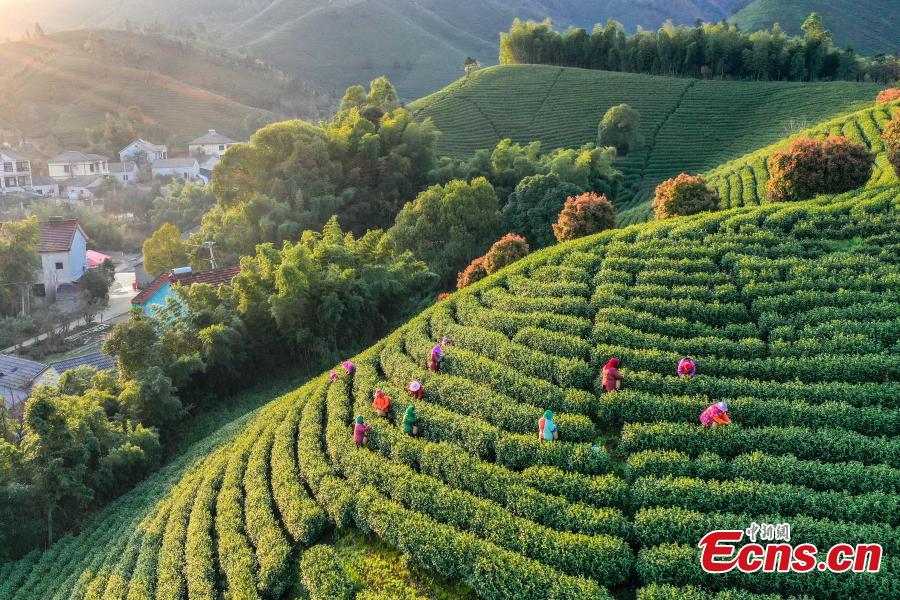
Farmers pluck the sprouts of Anji bai cha in Anji County, east China’s Zhejiang Province, March 22, 2021. (Photo: China News Service/Pan Xue Kang)
Anji bai cha is green tea originally produced in Anji, which has tender spring bud and presents a white color. At present, about 30 percent of the tea gardens have entered the harvest season. The tea production in Anji County this year is initially expected to reach more than 2,000 tons.
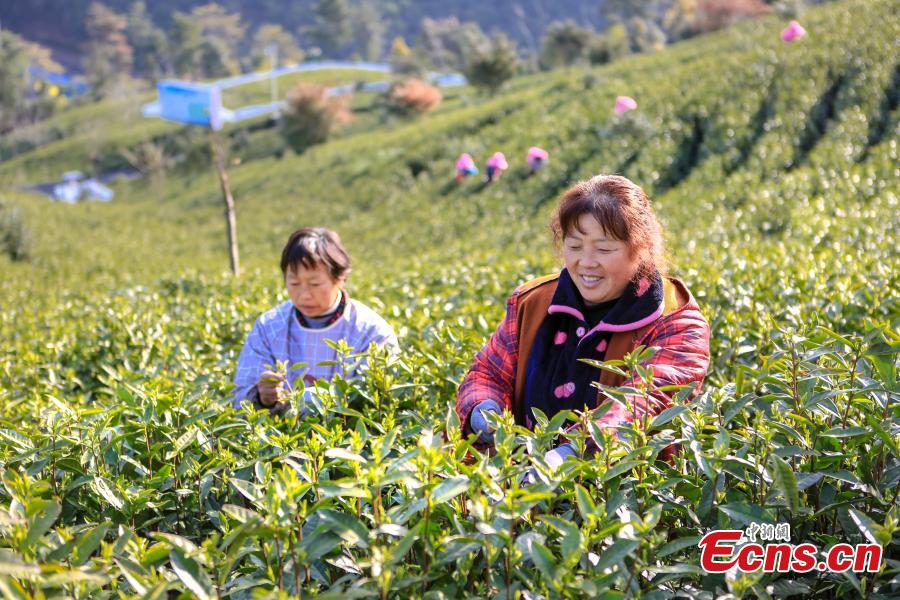
Farmers pluck the sprouts of Anji bai cha in Anji County, east China’s Zhejiang Province, March 22, 2021. (Photo: China News Service/Pan Xue Kang)
Anji bai cha is green tea originally produced in Anji, which has tender spring bud and presents a white color. At present, about 30 percent of the tea gardens have entered the harvest season. The tea production in Anji County this year is initially expected to reach more than 2,000 tons.
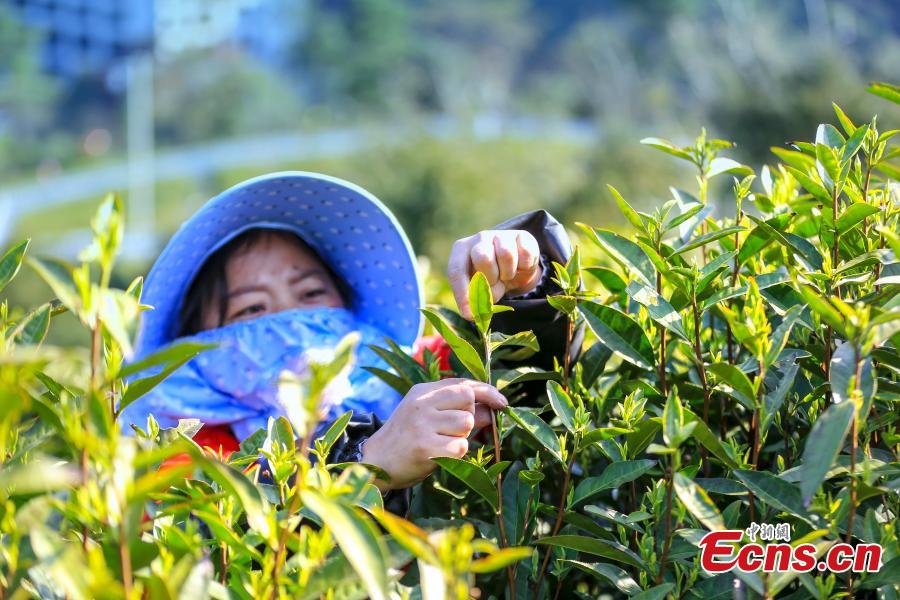
Farmers pluck the sprouts of Anji bai cha in Anji County, east China’s Zhejiang Province, March 22, 2021. (Photo: China News Service/Pan Xue Kang)
Anji bai cha is green tea originally produced in Anji, which has tender spring bud and presents a white color. At present, about 30 percent of the tea gardens have entered the harvest season. The tea production in Anji County this year is initially expected to reach more than 2,000 tons.
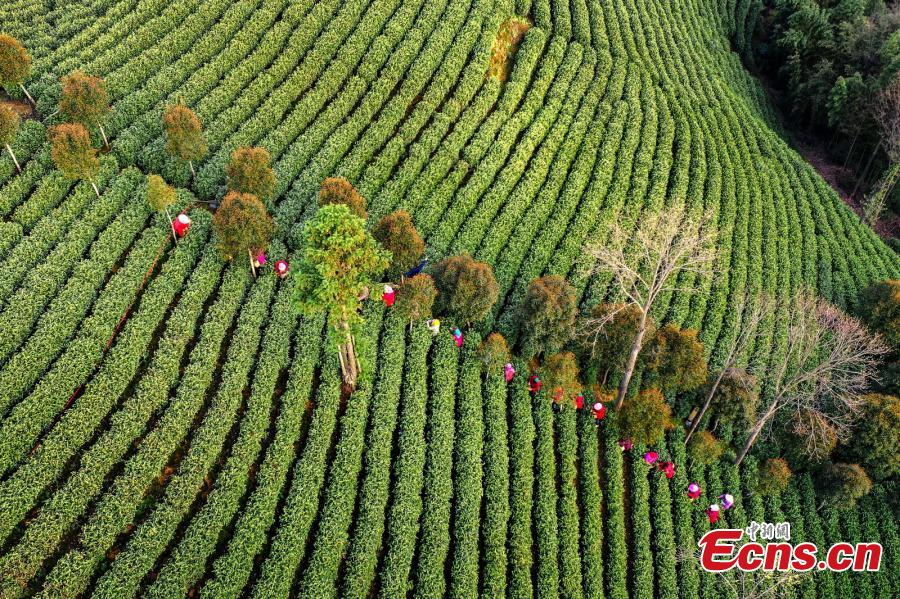
Farmers pluck the sprouts of Anji bai cha in Anji County, east China’s Zhejiang Province, March 22, 2021. (Photo: China News Service/Pan Xue Kang)
Anji bai cha is green tea originally produced in Anji, which has tender spring bud and presents a white color. At present, about 30 percent of the tea gardens have entered the harvest season. The tea production in Anji County this year is initially expected to reach more than 2,000 tons.
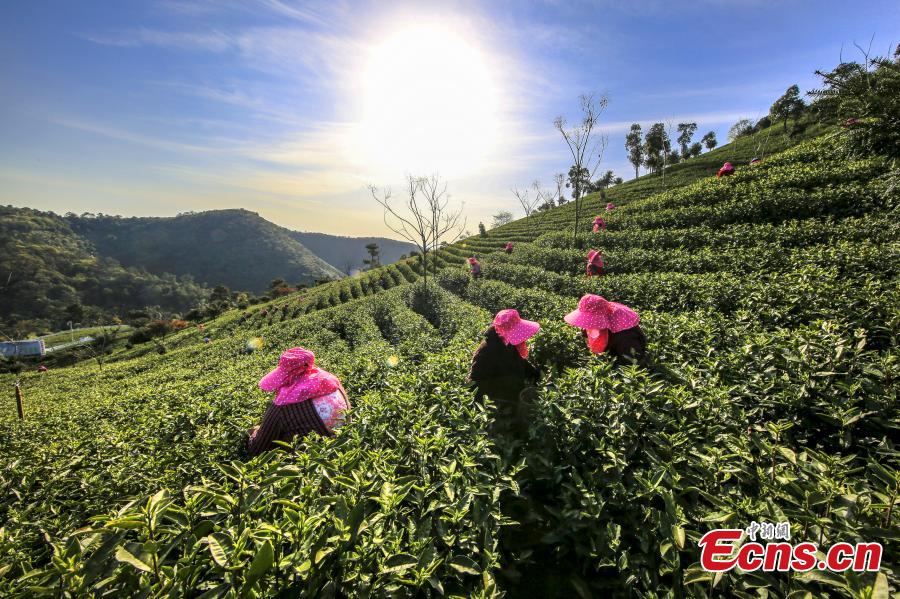
Farmers pluck the sprouts of Anji bai cha in Anji County, east China’s Zhejiang Province, March 22, 2021. (Photo: China News Service/Pan Xue Kang)
Anji bai cha is green tea originally produced in Anji, which has tender spring bud and presents a white color. At present, about 30 percent of the tea gardens have entered the harvest season. The tea production in Anji County this year is initially expected to reach more than 2,000 tons.











